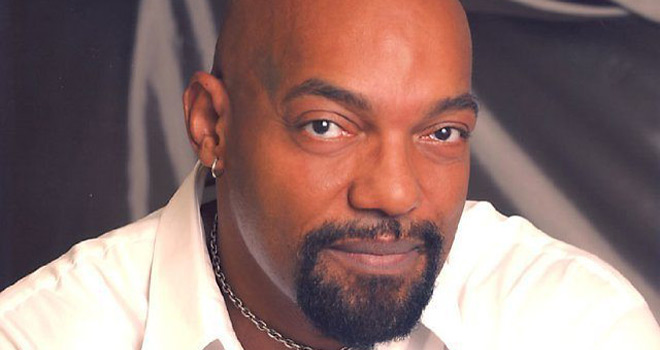
Immortalized in films such as George A. Romero’s 1978 classic Dawn of the Dead as the heroic Peter Washington, Foree has sustained a career in film and television for nearly 4 decades. Still active and passionate about acting, Foree took the time to talk about his journey in entertainment, the 40th anniversary of Dawn of the Dead, his latest films, future plans, plus much more.
CrypticRock.com – You have been involved in acting in film for over four decades now, and in that time, you have starred in a list of beloved genre films and built a strong fanbase along the way. First, briefly tell us, what inspired you to pursue a career in acting?
Ken Foree – I was in New York involved in photography and the civil rights movement before that. I spent some time with an actress one day, Cheryl Carter. She is no longer with us but she was a wonderful personal, beautiful woman, and a talented actress as well. I accompanied her down to an audition at a theater, this was before they built the Manhattan theater complex. There was this old abandoned theater someone was trying to renovate and this young actress took me down with her to audition for Blues for Mister Charlie, a James Baldwin play. I just had lost my photography studio; we were burglarized at night, lost all our darkroom equipment, all our cameras, etc. I was in between what I was going to do for the rest of my life, or at least the next couple of weeks. (Laughs)
So, I went down, sat there, watched her audition and I said, “Gee, this is nice. There are a lot of attractive women here, if I may say so.” I thought, “Maybe I will hang around here a bit. Maybe I will go up and read and get a line, walk on the stage and walk off.” Just for a few weeks until I decide what I was going to do with the rest of my life, and choices I am going to make in terms of a new career. Well, I read, and got the lead in an Off-Broadway play. We moved to the Manhattan Theater Club, a very prestigious theater on the Upper East Side of Manhattan, and I got great reviews. That was the beginning of my career. I did a guest starring role on Kojak from there. Then being in The Bingo Long Traveling All-Stars and Motor Kings (1976) introduced me to the large studio system and location shooting.
I worked with everybody on The Bingo Long Traveling All-Stars and Motor Kings, that’s a great story within itself. A matter of fact, my grandfather took me to see baseball games in Indianapolis, Indiana, for the semi-pro farm team of the Chicago Cubs or White Sox. We would go watch them, and every year, a couple of times a year, we would go see the Indianapolis Clowns. They were like the Harlem Globetrotters, but a baseball team. They were fun, it was as much fun as the Globetrotters for a 10-year-old kid. My grandfather would take us to see the Clowns and he was a big fan of the Negro league. So, I did The Bingo Long Traveling All-Stars and Motor Kings, which is about those past Negro Leagues, and I was shooting in Savannah, Georgia – the same place my grandmother and grandfather were from. Low and behold, who’s on the team? Billy Dee Williams, James Earl Jones, Richard Pryor, Stan Shaw, Tony Burton, as well as a slew of other people you would recognize and know. The most important thing to me was the Indianapolis Clowns were the rest of the baseball team! I was reliving my childhood.
That began the TV and film journey portion of my career. I came back to New York, got involved in 3-4 more plays. Then I was doing a play in the East Village, and one of the actors told me there was a role that was auditioning in Midtown Manhattan that I might be right for. I went to go check it out, and it was George Romero and Richard Rubinstein. Night of the Living Dead (1968) poster was on the wall, I said, “I love this movie!” I knew Duane Jones; we were part of the same civil rights movement in Harlem. I got Dawn of the Dead after auditioning with two different groups; first with Gaylen Ross, Scott H. Reiniger, and David Emge, then three others. They told me I got it, and I was on my way to Pittsburgh. That began that part of my life.

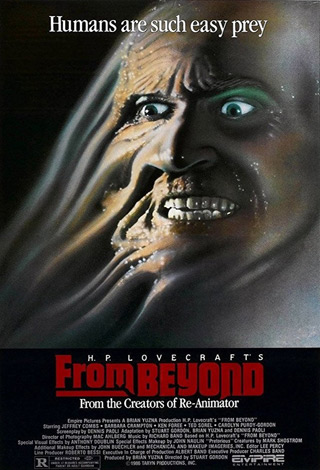
CrypticRock.com – Wow, it sounds like it was a pretty interesting journey leading toward that.
Ken Foree – I started as an extra, to a bit player, to a guest star, to starring in films. I have been very fortunate to move around. I have been in a lot of television, genre movies, and movies of the week. I have been fortunate to be flexible enough to move around to different genres and hold my own.
CrypticRock.com – It really is a crazy story how you were initially a photographer and this happened. It all seemed to work out well.
Ken Foree – I just think I was lucky. Sometimes you are not in control: there is karma, if you believe in god, it’s god’s blessing. I am not quite sure, but I think in many ways the message was there that maybe you should do this. I think if I wasn’t an actor I would probably gravitate toward politics, if not politics, teaching, if not that, coaching of some kind. Acting was just something that seemed to grab me and I seemed to have some talent for the art. That has been steadfast and held me in this business throughout these decades. It’s been an adventure… that’s for sure. (Laughs)
CrypticRock.com – It sounds like it! As stated, you have done a list of genre films, particularly Horror and Sci-Fi. Do you enjoy working in these genres?
Ken Foree – I enjoy working. (Laughs) Any actor that is worth their salt enjoys working, period. As an actor, you want to release the artistry that encompasses all our beings. Everyone has that, it depends how you want to do it. As an artist, you are dealing with emotions; people buy emotions, that is why they go to the theater and watch. They are not going to display their emotions easily, but they want to see you display what they feel. Certainly, the reward for that is not financial, but most emotional, psychological, and spiritual – there is nothing like it. Once you are working, whether it is Comedy, Action, Adventure, Horror, Sci-Fi, or whatever, there is nothing like the adrenaline that you feel by letting those creative juices flow, having an audience enjoy it with you, and seeing where it takes you. It’s not contrived, premeditated, or presentational, but it is a true sense of your inner being collaborating with written material and letting those experiences combine with the material that might be magical.
I know there are people who work as electricians, bus drivers, city workers, government workers, bankers, people who have all kinds of careers, but someone once told me there is no better life than working actors. I have to agree with it to some extent. I am sure there are better lives but to some extent there is nothing better to maybe touch someone, maybe change or influence a life for the better, maybe do something that takes a frown away from someone’s face. There is no feeling like that, it’s wonderful.
If it’s one of those date nights – you go on your first date or with whoever your significant other is – you take them to a Horror film, all of a sudden there is the shriek movement, and she grabs and holds you tight, you have kind of broken the ice and maybe I’ve helped. (Laughs) Maybe I’m responsible for a lot of marriages and a lot of pregnancies around the world. I don’t know. (Laughs)
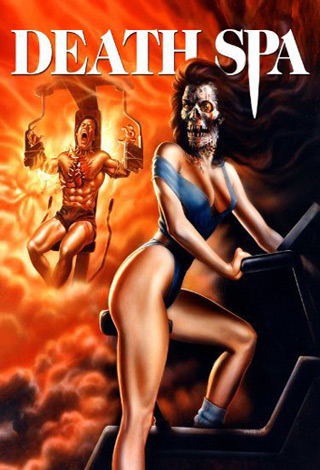
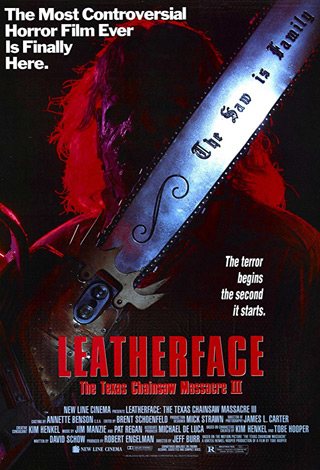
CrypticRock.com – Hey you never know! (Laughs) And you really have done a lot of great roles through the years. One of your most beloved roles came in 1978 when you portrayed Peter in George A Romero’s Dawn of the Dead, an all-time classic Horror film. What are your boldest memories of your time making the film?
Ken Foree – That’s a question that has been asked a hundred times, and I have to tell you: there are so many memories. Can you believe it was 40 years ago this year? There are so many classic movies. When we discover the bodies in the basement of the projects – I was really taken by that, surprised by it, and affected in a very negative way by that scene. The war with the bikers, I loved that! Also, the closing up the mall and enjoying ourselves, creating that private residence in the rafters of the mall. I have to say that my fellow cast members were magnificent in their roles, every time I see the film, I realize how magnificent they were.
I think probably the best thing I can say about Dawn of the Dead is it’s still entertaining. Even though it’s full of messages and it was low budget – you can tell it was low budget, it’s a 1978 film, you can’t get away from that – but it still has legs; it is still very entertaining. I would say it is probably George’s most successful film financially, I think Land of the Dead (2055) might have done well too. I think Dawn of the Dead, for me, one of the issues that I didn’t consider that important at the time was that an African-American survived a Horror film after the first 3 minutes. (Laughs) Apparently, everyone outside me in the universe realized that most African-Americans in those days did not last after the first few minutes.
I survived the carnage and flew off to further adventures with Fran (Gaylen Ross) in the helicopter. It was a huge deal for many African Americans, but others as well; and I didn’t realize for decades after the film how big a deal that was and how people were happy. For me, I can name 10 or 15 memorable moments in the film, but I think what is probably most important is it meant so much and touched the lives of so many people. It changed the lives of people, people who never thought of directing or producing a film are now directors and producers because of the film. People who would not necessarily gravitate toward Horror are Horror fans because of that film. People tell me it changed their lives. I meet guys who are my age who tell me I got my son involved, now my grandson is involved. Some people have seen this movie 400, 500, 600 times – that’s a lot of viewing of one film! For me, there are vast memories and the ones I pointed out to you are just a few.
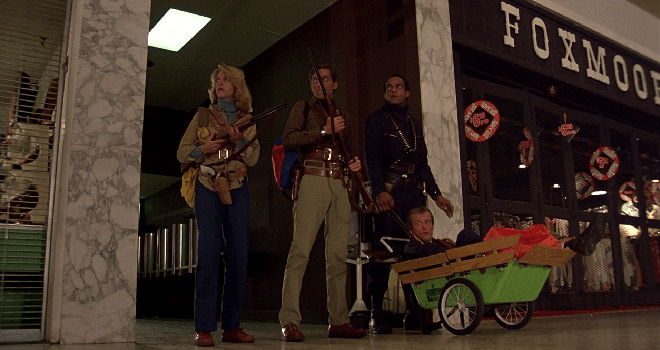
CrypticRock.com – Yes, Dawn of the Dead really changed a lot, not only in Horror, but all genres. It was not only frightening but a social commentary, which you mentioned. Was that something all involved were aware of during its creation?
Ken Foree – Everyone thought it was a great idea. You read the script and you say, “We end up in a mall, we fence off the mall, we have all the supplies we need.” We had consumerism, the massive military industrial complex. It was after Watergate, after Kennedy had died, Martin Luther King Jr. had died; it was a time to speak out. Also, there weren’t that many malls around at the time; there were malls, but you didn’t find one in every community of the country at that point.
I think George just hit on it right: he had a message for each one of his films and that message resonated so clearly in the consciousness and fabric of the American population. It was like cowboys and the bad guys, and that is how we felt; we were having a great time! It was fun, adventitious, shocking, explosive, and a romp; it was really great. If we would have success, we didn’t know; we didn’t know if it would be popular or the audience was going to get it.
I certainly don’t think any of us had as clear a vision of George’s intention, even though we read the script several times. We saw it and said, “This is very interesting, creative, and visionary to see this.” It was an enlightening kind of script in terms of what happens, it was like, “Wow, we can do this?” We knew we were part of something special, but we didn’t know if that specialty would carry over to the audiences and that it would be a successful film. It was just a lot of fun, and that is the way George kept it on the set.
All of us were very inexperienced actors, some of us had very little experience at all. I don’t think anybody had a feature behind them except for me. I think George, like a grand puppeteer, moved us, bandaged us, kept us moving, put on a great show, and we were part of it. We were lucky enough to be a part of it.
Certainly, Dawn of the Dead was one of them and we knew at the time it was a great idea, but we had no idea the rest of the world would pick it up or get it. A lot of times you make a film, you have a message or commentary of some kind, you think you are making a statement; you make the film, it opens, and it’s not clear. Believe me, I have been involved in those kinds of films, so I know. I think we kind of realized it, but at the same time we were on an adventure.
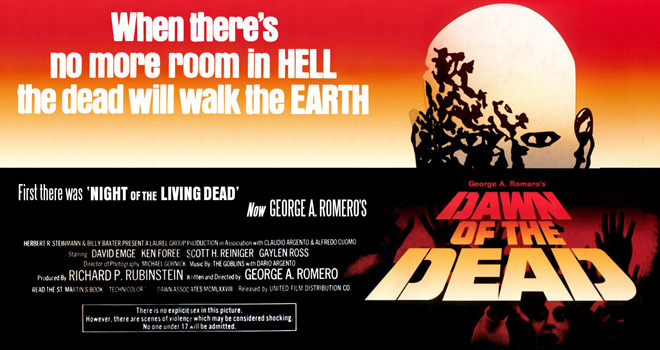
CrypticRock.com – It truly is a special film, even 40 years later. In recent years you have remained extremely active in film, and one of your most recent roles came in The Midnight Man. How did the role of Hamilton come about for you?
Ken Foree – I finished 3 films that opened this year, The Midnight Man being one of them. I was in the middle of a very difficult situation, I got a call from my agent, and they said we have this script. I said send it to me, I read it, and I liked this character Hamilton. I said okay, and they told me it’s in three days. I said, “Three days? That’s a lot to do.” They told me it’s in three days and a 10-day shoot! I said that’s a lot to get in, but I said alright.
Fred “The Hammer” Williamson is the pioneer of the 10-day shoot, and that was in the ’60s and ’70s. Everyone gave Fred a big boo-hoo. Since then, he set the standard, and decades later people are following his lead. The Midnight Man was one of those 10-day shoots. I had just a few days to learn the lines, get out there to develop the character, and start shooting immediately. It was really because I liked the character, that is how I got involved with it. It was very quick and very stressful, because it was completely under-budget.
You are always going to have some issues, depending on the experience of everyone involved and availability of funds, even with your large-budget movies. I did Water for Elephants: lucky enough, if something went wrong or they had an issue, they had the expertise and money to bandage it up and move on. With lower budget films, it becomes more of a crisis and more difficult to cover up inefficiencies when they happen. I loved doing Hamilton, I would love to do him again. I had a great time with that character!
CrypticRock.com – You really do an exceptional job with the role of Hamilton. You have portrayed many roles in your career, but have you ever had to play such a role before and was it a challenge?
Ken Foree – I have had Comedy, Drama, Action/Adventure, Horror, and Sci-Fi. I don’t know if I ever played a character quite like Hamilton, Hamilton was a lot of fun. I don’t recall playing a character like him; I have played so many characters. I was happy to play this one! Ask me what I do, I would probably say I have enough chops and am flexible enough to do Comedy, Drama, Horror, and certainly Action/Adventure – I do very well with that kind of thing.
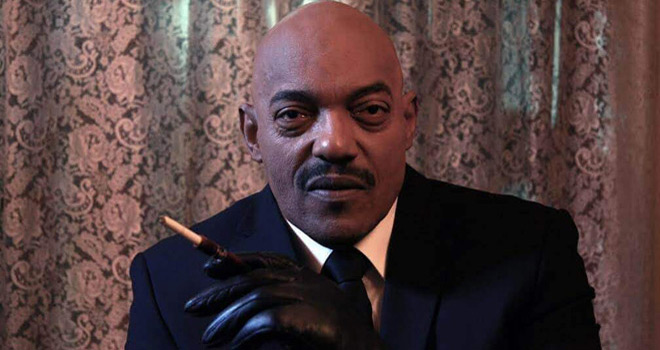
CrypticRock.com – That diversity is something to be proud of. Seeing you have been steadily busy with roles over recent years, do you have any new projects coming up in 2018?
Ken Foree – Oh goodness, yes, and none that I can talk about yet. I wrote a 6-hour limited series, I have written several other things; I never really considered myself a writer until I wrote the 6-hour series. I then had the VP of HBO here by my house for drinks one night with other people, and the script was in the den. They opened it up and asked what it was, “Can I read it?” I said it’s just something I am doing as a joke; I am just playing with it, and sending it to my family for Christmas because I use a lot of their names. I told them I don’t know why you want to see it, but bring it back. (Laughs)
He took it home and he told me it is one of the 5 best scripts he ever read. I said, “No, you are out of your mind! Why are you telling me that?” I told him, “You don’t have to say that because we are friends.” He told me, “I am quite serious, you should really write.” I thought this is crazy! So, I thought if he thinks I can write, I will write something else. I wrote a sitcom called “Limo Inc.,” it won’t work today, but it was similar to Taxi. I wrote an Action/Adventure low-budget. I wrote something that is similar to NCIS called “Level Four.” I also wrote a zombie script that I am going to push, as well. I write huge! Once I start to write, I have to say to myself, “This has to fit under 1-2 million dollars.”
To be honest with you, I have been involved with several productions over the years. Some of them I have been involved with since conception, and I have mentioned we have a problem here. Because of ego and insecurities, people didn’t listen and I had to fight to get anything done. Usually, I am hired to act. Sometimes I know the producers or I am co-producing, and I get together with them and say this isn’t going to work. I tell them, “This is supposed to be a collaboration, we work best that way, and this is really a problem.” I found so many people, because of ugly issues – because of their fear of someone taking over from them, or someone having an idea they didn’t have – they resist. They don’t listen, and it comes to fruition that what I said was absolutely right; everyone else in the world saw it when it was released. No one has come back to me and said, “Ken you were right.” So, I decided, maybe it’s time I do my own; maybe it’s time I direct, write, and hopefully produce, or get someone to produce for me.
At times I say, “If I’m right, the audience thinks I’m right, and the reviewers think I’m right – why the heck am I not doing it myself?” That’s the horrible thing: when politics and ego get in the way you kind of destroy your own product. People have to pay for it by having a product that didn’t make the money, didn’t get the kind of distribution they wanted, and a lot of was wasted. I see a lot of that done because people are unwilling to collaborate with people who know what they are talking about.
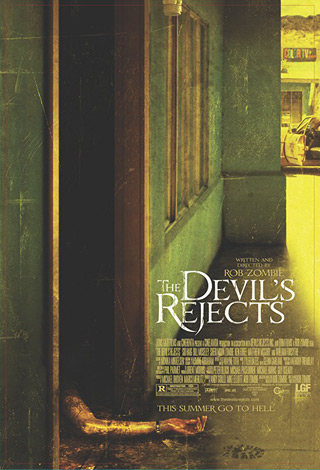

CrypticRock.com – These sound like really ambitious projects. You mentioned politics, isn’t that the way of the world? Look at all the conflicts we have had since the beginning of time. It is truly the plague of humanity that people cannot take advice from others.
Ken Foree – It is part and parcel of humanity, but when you are making a film there has to be some collaboration and someone has to be the head. Someone has to be the director, the production manager, etc., but when it becomes an issue that you are going to lose money or the film is not going to be as good – when you make those kinds of decisions where you put your ego ahead of financial gain – then it becomes stupidity. Again, since the beginning of time, the world has been full of people who have made those stupid decisions; that is why we’ve had wars and all the other issues.
Basically, when you are on a film set, you have a great idea and another way to do it and someone is not listening to you because they feel threatened; the film may suffer a tragic injury. It’s not worth it, and I have seen a lot of that; you pick your battles. If you have to stand up and fight for something, you have a good solid reason to fight for what you think is right or a better way to do something. That is fine! Sometimes it’s all personality, all ego, and who likes who; you are not seeing the big picture, and if you don’t see the big picture, it’s fool’s play for me. Believe me, I have run into some of the most assine reasons for not listening to someone!
CrypticRock.com – It is unfortunate when that happens, and it happens a lot. What it should really be about is the end product.
Ken Foree – Absolutely! I have heard people make statements on the set of films I am involved in and I have to say, “Are these people crazy, are they delusional?” (Laughs) Really, they think this makes sense in the script, and they don’t see if we don’t connect the dots here, we are in trouble. When you connect all the dots and you have everything you think is right, and the film premieres, sometimes it just is not there. Water For Elephants we had a wonderful cast with 3 or 4 Academy Award winners, a good script, great producers, great cinematographers; we had everything you could want, but was it a very successful film? I don’t know, I don’t think so. I don’t think it did as well as you might think with all those ingredients together. I enjoyed it: I thought it was a good film and I enjoyed everyone in it. It didn’t get the numbers; you never know.
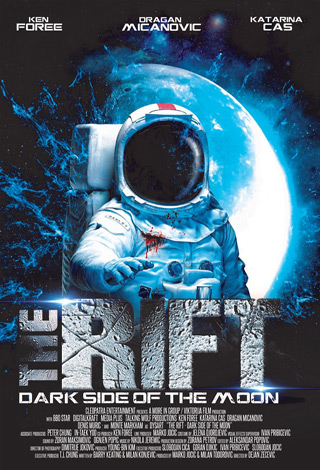
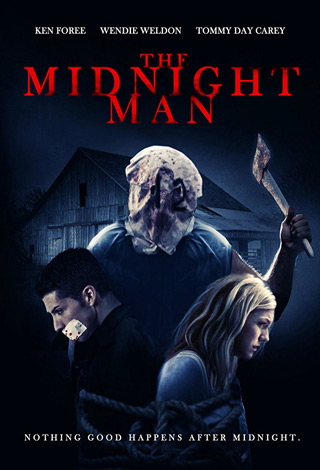
CrypticRock.com – Yes, you never know. It truly is impossible to predict.
Ken Foree – Basically, if you follow the dotted line, you do the right things going up the ladder – get the right education, keep your nose clean – you can advance, make more money, and have a pretty good life. Only in our industry is that not true. You can have a Master’s Degree in Theater and Film, you can work in low-budget stuff for hundreds of years and sometimes you almost never get a job, you have to change to another career.
That is what makes our profession so unstable for most people, that is why most people leave. Can you imagine how many people are attending drama school now? Why? Because they want to become actors. Do you know how many of them go home to find something else to do? Probably about 90%. It’s a very tough business; it takes a lot and is very difficult. There is a very narrow portal to get into and stay; it can spit you out in a second. I am happy I have been able to survive in it, flourish somewhat in it, and I am still working.
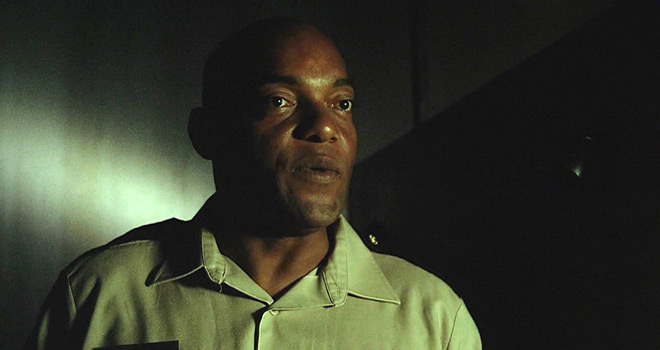
For more on Ken Foree: Twitter | Instagram | Facebook

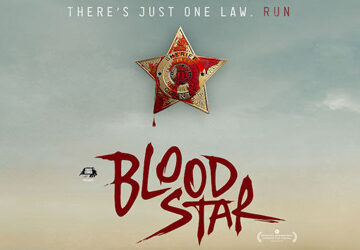
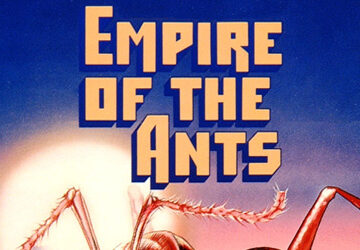


No comment